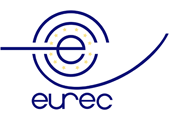menu
- Home
- National Information
- EC-Activities
- EUREC-Activities
- Legislation
- Training Materials
- Literature
- Events
- Newsletter
supported by:

Eurecnet - Training material details
Training material details
Teaching the responsible conduct of research through a case study approach. A handbook for instructors
Author(s): Korneman, Stanley; Shipp, Allan C.
Document type: Book
Year: 1994
Pages: 226
Source: Research organisation, umbrella organisation: Association of American Medical Colleges (AAMC)
Language(s): English
Classification
National background: United StatesCategory: Non-EU Training Material for Research Ethics
Subject areas: Animal experimentation; Conflict of interest; Ethical research (fraud and misconduct); Human experimentation
Content: Case studies; Important codes; Normative reflections
Issues touched: Autonomy, respect, informed consent, subjects unable to consent, role of representatives Beneficence, non-maleficence, risk for the subject Justice, benefits/burdens, research without benefit for the subject, placebos/standard therapy; Social background of research, conflicts of interest, researcher vs. doctor, commercialisation Fabrication, falsification, plagiarism; Ethics committees, research protocols Research on animals
Audience: Laboratory workers; Scientists; Students of natural sciences
Classification remarks: Handbook of case scenarios, issued by the Subcommitte on Teaching Research Ethics of the AAMC ad hoc Committee on Misconduct and Conflict of Interest in Research.
Estimation
Theoretical quality remarks: The handbook consists of a general introduction on "Teaching the Responsible Conduct of Research" (including an annoted bibliography on books and articles on this topic), 10 sections of case studies (see below), an annotated overview of research guidelines (only US-American), a bibliography, an index of the cases contained in the book (ordered by topic and sub-topic), a table of US-American courses in research ethics in 1993 and a questionnaire for students to evaluate the quality of the case studies presented to them. The 10 sections with case studies are: "Conducting Research", dealing with the proper collection and selection of data (5 cases); "Reporting Research", dealing with fragmented publication, authorship, plagiarism etc. (8 cases); "Peer Review", dealing with grant applications and journal submissions (2 cases); "Handling Research Data, Materials, and Proprietary Information", dealing with ownership of material and confidential information (3 cases); "Mentoring and Laboratory Supervision", dealing with laboratory selection and gender dominance (2 cases); "Misconduct in research", dealing with suspicion and hierarchy (3 cases); "Conflicts of Interest", dealing with commercialisation (2 cases); "Human Subjects/Clinical Research", dealing with informed consent, the "equipoise"-problem and other physician/researcher conflicts (4 cases); "Animals in Research", dealing with animal experimentation (2 cases); "Gene Therapy, Genetic Testing, and Uses of Genetic Information", dealing with germ line intervention etc. Each section contains a short introduction into the issues touched, the case studies (consisting of a short description of the case and some questions for reflection/discussion) and suggested further readingsDidactical quality: Didactically prepared material
Overall estimation: recommendable
Estimation remarks: The selection of topics is clearly influenced by the interest of the AAMC to improve the general academic conduct at universities and laboratories. The introductions to the case studies remain very basic, just broadly outlining the dilemmas displayed in the cases without deeper discussion of their ethical aspects. Thus, much will depend on the use of the case studies by teachers. However, this collection may provide a lot of clearly presented and well-ordered cases.
